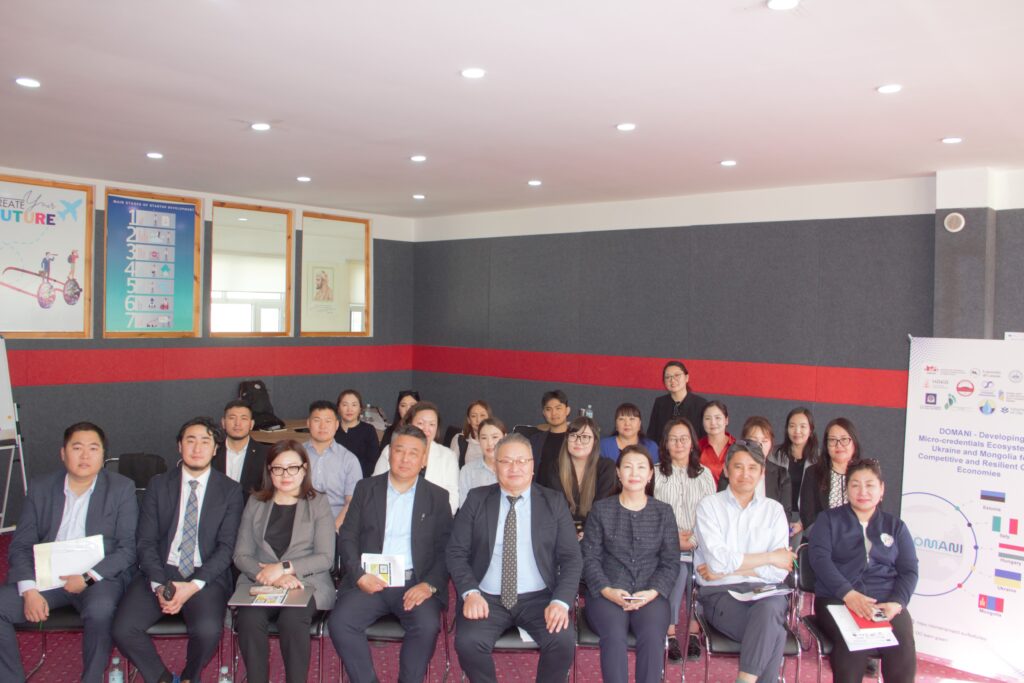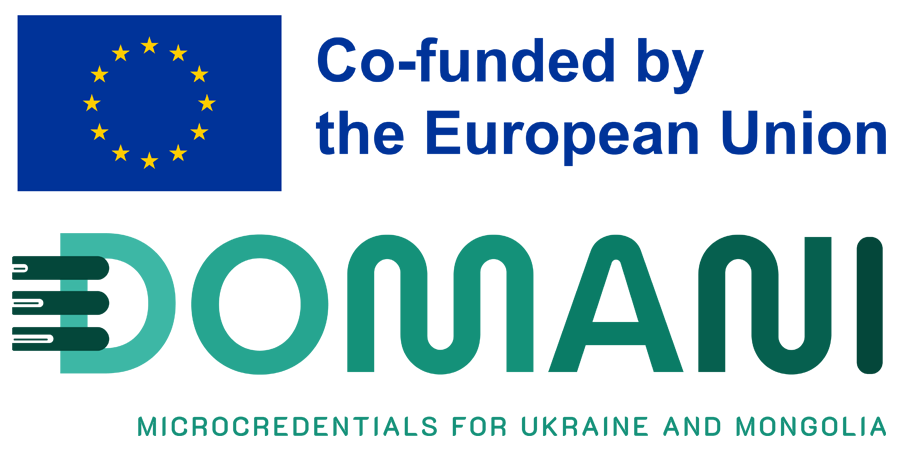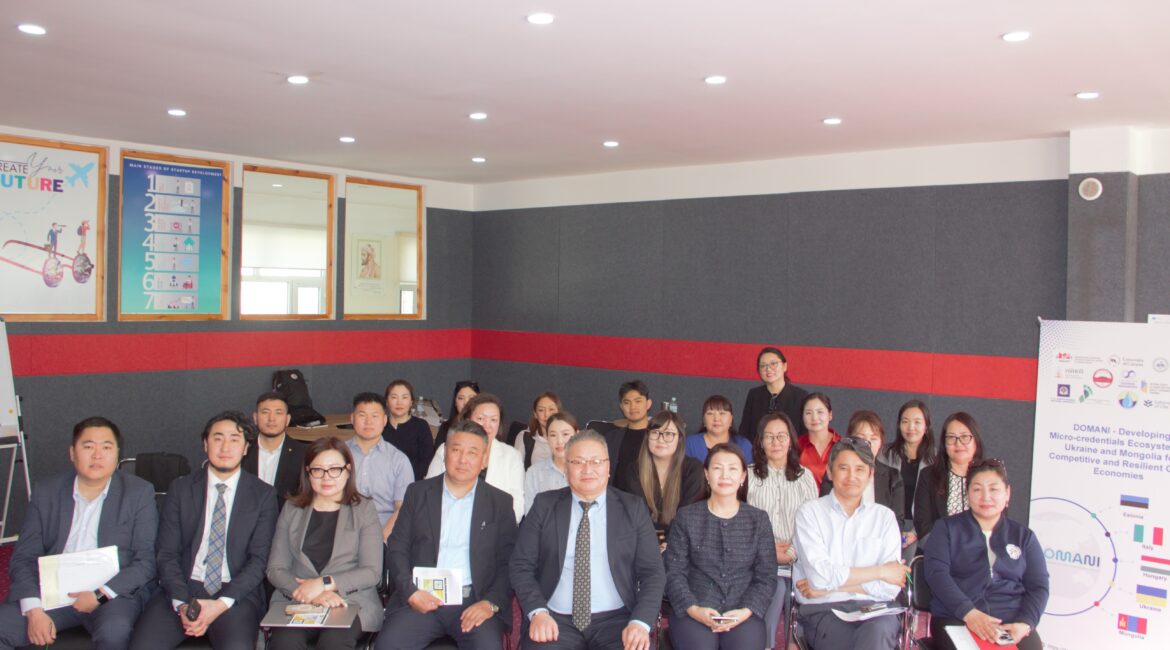The workshop on Building a Micro-credential Ecosystem: Strategies, Policies, and Practices for Higher Education and Workforce Development in Mongolia was successfully organized in a hybrid format, both online and onsite, in Darkhan-Uul, Mongolia, on April 18, 2025. The workshop aims to enhance institutional capacity for micro-credential development by increasing awareness of EU best practices and national practices for fostering collaboration among key stakeholders. The workshop brings together key stakeholders, around 30 participants from academia, government, and industry, for the development of strategic documents and policy guidelines. The event fostered dynamic discussions and collaborative planning, resulting in several key outcomes.


As part of the workshop’s international knowledge exchange, Ms. Kristina Marran, Head of the Open University at the Estonian University of Life Sciences and DOMANI project coordinator and the project partner organization, the Center for System Innovation in Hungary, and its director, Attila Katona, shared valuable insights into European approaches to micro-credentials. This included policy frameworks, strategic implementation models, and quality assurance mechanisms, and participants gained valuable insights into the micro-credentials ecosystem of the European Union.
Ms. Basbayar Batmunkh, Senior Liaison Officer for Foreign Relations and Cooperation at the Mongolian National Council for Education Accreditation (MNCEA), shared insights into the national accreditation framework. Her presentation highlighted key challenges in integrating micro-credentials into the existing system. It emphasized the need for clear standards and quality assurance measures tailored to short-term, flexible learning pathways.
Following this, Dr. Bulgantamir Sangidkhorloo, Head of the Office for Academic Affairs, Curriculum, and Quality Assurance Policy at the National University of Mongolia, presented the university’s internal regulations and procedures for non-degree studies, including micro-credentials. Her talk offered a practical example of how Mongolia’s higher education institutions are beginning to formalize and implement micro-credential offerings within their academic structure.


Two interactive roundtable sessions were organized as a key component of the workshop to foster in-depth dialogue among stakeholders from higher education institutions, government agencies, and the private sector. The first session focused on assessing the existing landscape of micro-credentials in Mongolia. Participants identified key challenges, such as limited policy frameworks, lack of standardized accreditation processes, and low awareness among employers. At the same time, several opportunities were recognized, including growing demand for flexible learning pathways and digital upskilling. The second session outlined a roadmap for integrating micro-credentials into Mongolia’s higher education and professional training systems. Stakeholders discussed practical steps for policy development, institutional readiness, and pilot program implementation.
The workshop proved highly effective in building a shared understanding and setting the foundation for a national strategy to support micro-credential development. It concluded with a commitment to future collaboration and capacity building. Participants expressed a shared vision for advancing a more flexible, inclusive, and competency-based Micro-credentials system in Mongolia. Moving forward, they committed to continued dialogue, knowledge sharing, and practical steps toward building a national micro-credential framework that empowers learners and responds to evolving labor market needs in Mongolia.

